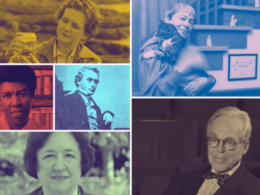On his 175th birthday, Volume One (of three!) of the Autobiography of Mark Twain seems to be everywhere. On NPR. C-Span. Slate. And The New York Times bestseller list. Readers daunted by its 500,000 words may be comforted by this exchange in 1906 between Twain and lifelong friend William Dean Howells (it could have been much longer!):
I told Howells that this autobiography of mine would live a couple of thousand years without any effort and would then take a fresh start and live the rest of the time.He said he believed it would, and asked me if I meant to make a library of it.
I said that that was my design, but that if I should live long enough the set of volumes could not be contained merely in a city, it would require a State, and that there would not be any Rockefeller alive, perhaps, at any time during its existence who would be able to buy a full set, except on the installment plan.
Howells applauded, and was full of praises and endorsements, which was wise in him and judicious. If he had manifested a different spirit I would have thrown him out of the window. I like criticism, but it must be my way.
It certainly wasn’t always Twain’s way. In fact, some would argue that his forty-year friendship with Howells was what enabled Twain to become Twain. As biographer Ron Powers put it:
In the slipstream of the Clemens-Howells creative bond, American literature ceased its labored imitation of European and Classical high discourse, and became a lean, blunt, vivid chronicle of American self-invention, from the yeasty perspective of the common man. Without Howells’s friendship, Mark Twain might have flared for a while, a regional curiosity among many, and then faded, forgotten. On its legitimizing strength, he gained the foundation for international status as America’s Shakespeare and struck a template for the nation’s voice into the 20th century and beyond.
Twain and Howells first met in 1869 when both were in their early thirties. Howells was then assistant editor at The Atlantic Monthly. Charged with finding new voices from the West, he had taken the unorthodox step of reviewing in the December issue a new book sold by subscription from the American Publishing Company. Howells found The Innocents Abroad “always good-humored humor . . . and even in its impudence it is charming.” He closed with this judgment of the author:
It is no business of ours to fix his rank among the humorists California has given us, but we think he is, in an entirely different way from all the others, quite worthy of the company of the best.
In mid-November, while the magazine was still on the newsstands, a six-foot, mustachioed redhead in a sealskin coat “with the fur out” descended unannounced on the magazine’s Boston office, seeking the author of the unsigned review. Howells recalled that Twain “stamped his gratitude into my memory with a story wonderfully allegorizing the situation, which the mock modesty of print forbids my repeating here.” We now know from letters that upon meeting Howells, Twain drawled, “When I read that review of yours, I felt like the woman who was so glad her baby had come white.” And a friendship was born.



